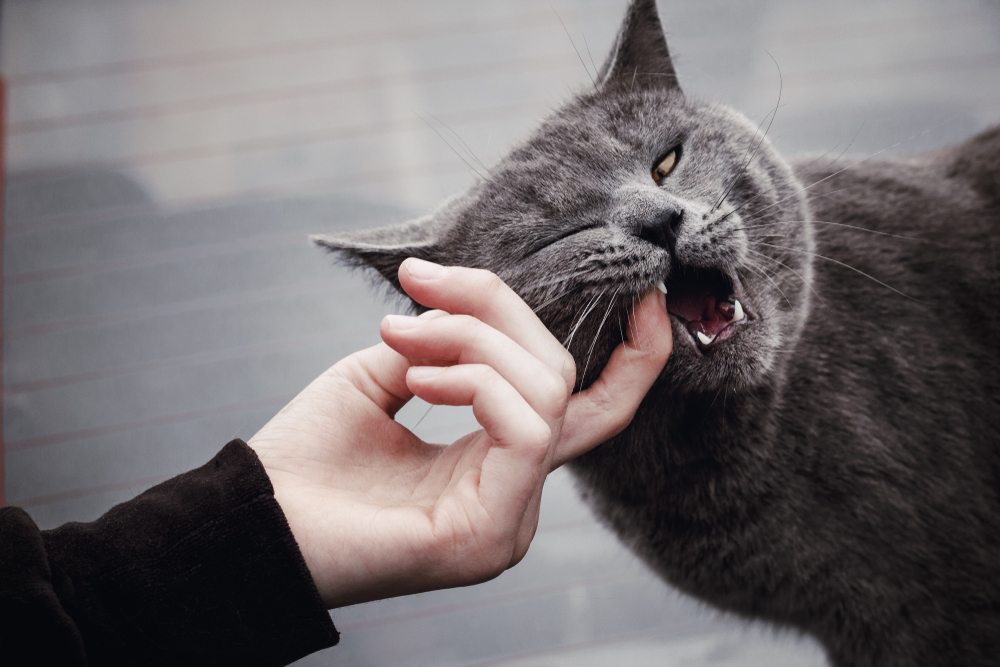
If you’re lucky enough to live with a beloved feline, you know how quick cats can be. They leap from counter to counter, zoom around the apartment, and occasionally grab you and bite your hand. This behavior can be surprising and startling, and if you don’t understand what it’s about, you might be upset and frustrated.
Your cat biting your hand or arm seemingly randomly doesn’t mean that she doesn’t love you, and it also doesn’t mean she’s doing this just because. Instead, there are important messages behind your cat’s behavior. If you’re wondering, “Why does my cat bite me when I pet them,” — there are a few potential causes that you need to understand.

Why does my cat grab my hand and bite me?
If your cat bites you when you’re patting her, you’re witnessing something called petting-induced aggression. These bites are generally gentle and don’t draw blood, but they can still be painful and upsetting. Your pet might lick at your hand first before using her teeth. (If you see signs of aggression, your cat is telling you in no uncertain terms to back off and give her some space.)
In the case of petting-induced aggression, scientists are still trying to understand the exact cause. This biting is generally your kitty’s way of telling you that she’s done with having you pat her and that you need to move away. Your animal might not enjoy being petted or may have reached the point where she’s overstimulated and needs the session to end.
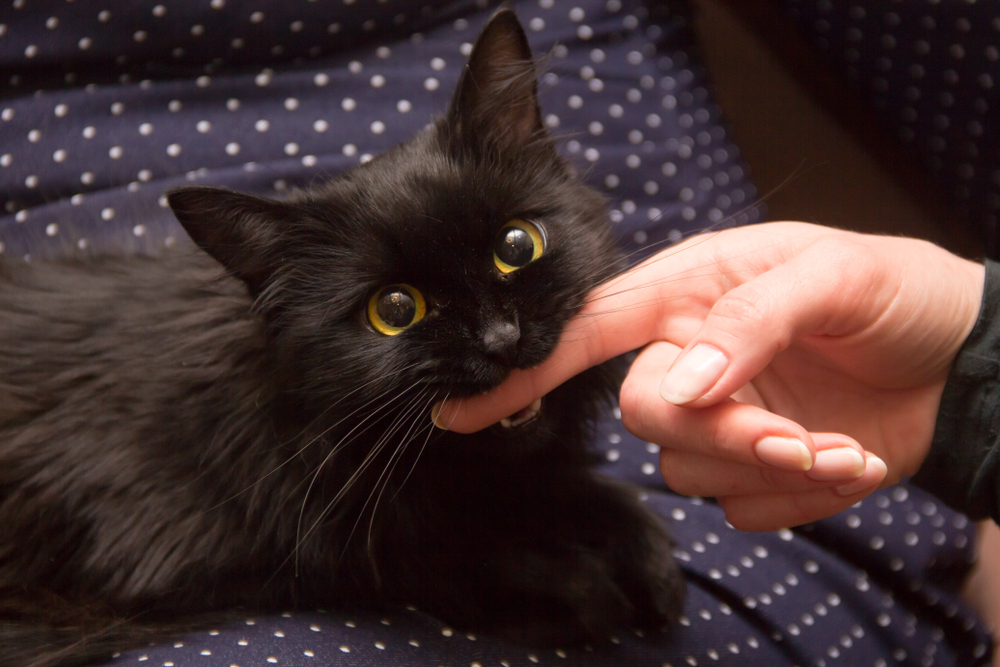
How should I respond when my cat bites me?
If your cat bites you, you should never react negatively. Don’t frighten or scruff her. Remember, biting is your kitty’s way of communicating with you.
Instead, respect your pet’s wishes and move away from her. Don’t attempt to keep patting and give her some space. She has “spoken” up loud and clear, and it’s your job to listen.
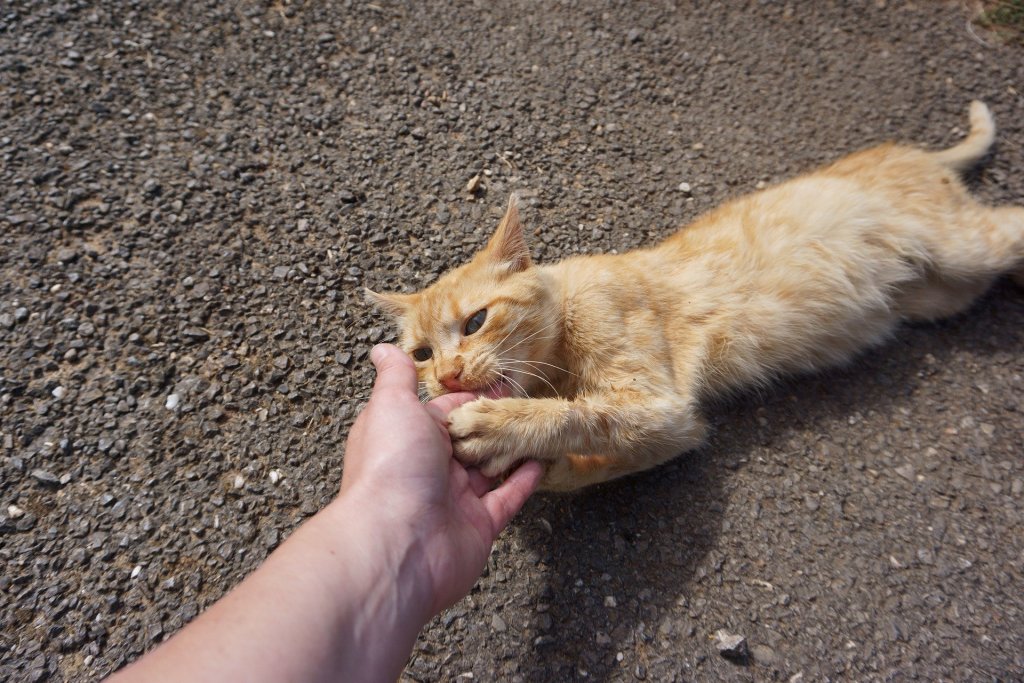
How to treat a cat bite
Sometimes your cat biting will just mean a little nip that doesn’t even leave a mark or break skin. It’s not a bad idea to wash your hands, but no further medical attention is required. However, if you wind up with an actual wound, you do need to take care of it. For starters, infections like cat scratch fever can become serious if left untreated — when your pet injects bacteria into your bloodstream you might need antibiotics.
Start by cleaning your injury and trying to get anything unpleasant out. Even though it seems counterintuitive, you should squeeze your cut so the blood helps clean the area. Then add antibiotic ointment and bandage it. Do give your doctor a call, especially if you spot any signs of infection like redness, swelling, pus, or excessive pain.
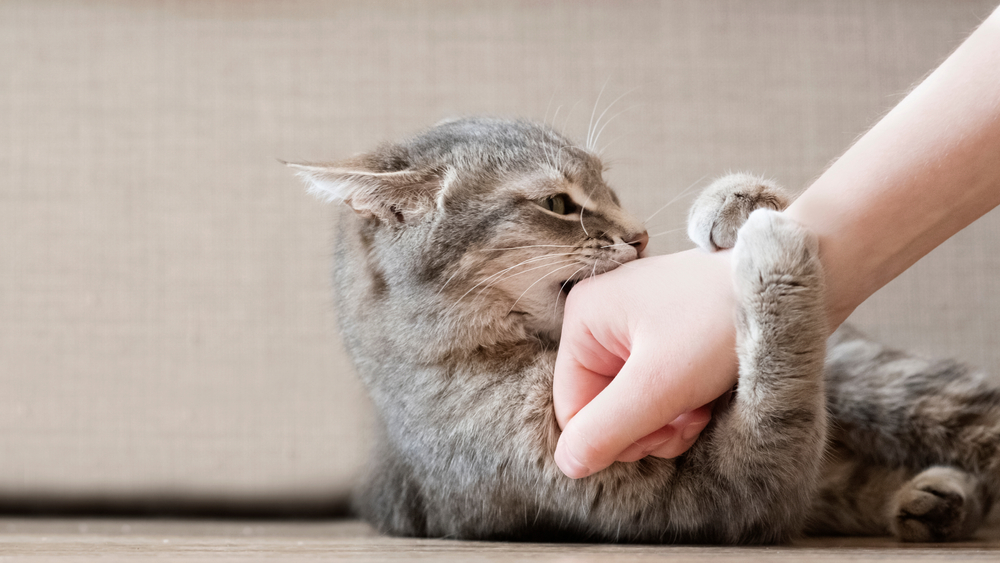
How do I get my cat to stop biting when petting?
Getting your cat to stop biting you is a matter of modifying how you pet her and learning to watch for signs that she’s becoming overstimulated.
Make an appointment with the vet
To start, it’s a good idea to take your little guy to the vet for an examination to make sure she isn’t experiencing pain anywhere that’s prompting her to bite. This could be anything from a skin infection to a stomachache, so rule these out first.
Look for telltale warning signs
Next, learn to watch for your pet’s warning signs that tell you she’s getting uncomfortable. Your feline might pull her ears back or start to twitch her tail. You might notice that your animal’s pupils dilate, and her body may get stiff all over. Some kitties even growl and start to expose their claws. If you notice any of these indicators, it’s important to honor your cat’s wishes and stop patting her. If she is on your lap, move her off to give her some space.
Try patting your cat a different way
You may also need to modify how you pet your cat. Some furry friends like short strokes as opposed to long, drawn-out strokes, and some cats like you to only pat certain areas of their bodies, like under the chin. Experiment with using different strokes, and instead of using your whole hand, see if your mouser better tolerates just a finger or two. If your kitty doesn’t bite you during a patting session, consider rewarding her with a treat to reinforce this positive behavior.
Keep track of your cat’s behavior
Once you’ve learned the warning signs, you can watch to see when these signs appear. Keep track of how long you’re able to pat your cat before she gives you a warning. Some can only take so much patting, so if you’re able to determine that she can tolerate a certain amount, you can keep this in mind so you can stop before she gets uncomfortable.
Understand your cat might just not like to be touched
Finally, realize that cats can be particular. Even some very social four-legged friends just don’t appreciate being patted. If you try all the above strategies with no improvement, then it’s probably time to honor your cat’s wishes and not pat her. You can show her affection in other ways, such as by playing or just spending time nearby.
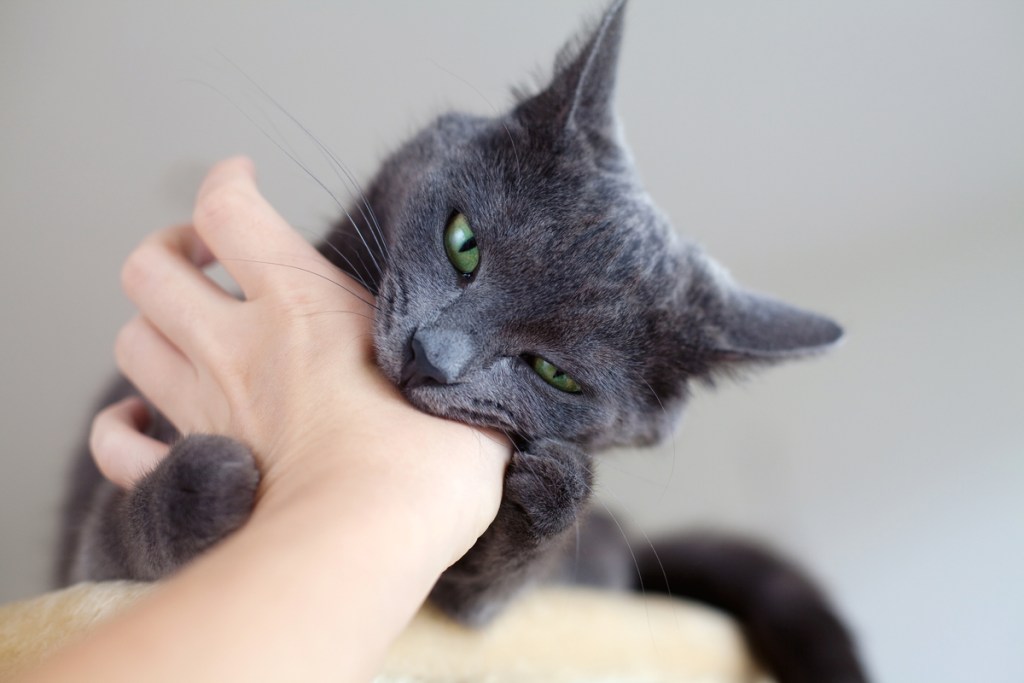
Why does my cat bite me but not my partner?
If your cat keeps biting you when you pat her, she’s trying to tell you something. By taking the time to listen and try to figure out the cause of this behavior, you’ll be doing right by your cat and helping to ensure she’s comfortable in her home.


